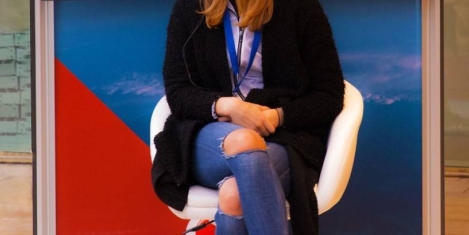October 16, 2018
The self-employed live day to day but remain worried about plans for the future, claims study
 Self-employed workers are mostly financially secure and happy in the present, but concerned about the future, a new report by IPSE (the Association of Independent Professionals and the Self-Employed) and Sherpa has found. The report, ‘The Path to Prosperity, claims that although almost three quarters (72 percent) of freelancers are currently enjoying life because of how they are managing their money, 77 per cent are concerned the money they have – or are going to save – will not last. It also found that over half (51 percent) of the self-employed have felt anxious or stressed about their financial situation. This is exacerbated by the lack of tailored money management advice and flexible savings products available for the self-employed.
Self-employed workers are mostly financially secure and happy in the present, but concerned about the future, a new report by IPSE (the Association of Independent Professionals and the Self-Employed) and Sherpa has found. The report, ‘The Path to Prosperity, claims that although almost three quarters (72 percent) of freelancers are currently enjoying life because of how they are managing their money, 77 per cent are concerned the money they have – or are going to save – will not last. It also found that over half (51 percent) of the self-employed have felt anxious or stressed about their financial situation. This is exacerbated by the lack of tailored money management advice and flexible savings products available for the self-employed.













 Today is World Mental Health Day and new research from Bupa has found that concerns over mental health is not confined to adults, as a third of employees say they worry about their children’s mental health while at work. The research, conducted among working parents of 4-18 year olds reveals that children’s mental health is among parents’ greatest concerns, on par with physical health and academic performance. The only concern that ranks higher is future financial prospects.
Today is World Mental Health Day and new research from Bupa has found that concerns over mental health is not confined to adults, as a third of employees say they worry about their children’s mental health while at work. The research, conducted among working parents of 4-18 year olds reveals that children’s mental health is among parents’ greatest concerns, on par with physical health and academic performance. The only concern that ranks higher is future financial prospects. 








 National Work Life Week (1st – 5th October 2018) starts today with the aim of encouraging companies to think about their employees’ wellbeing and happiness. To mark the week new research asked British workers about the things they most want from their work. The YouGov survey of 2,000 adults, commissioned by the Oxford Open Learning Trust, found that while money is predictably the biggest motivator behind career choice (64 percent), over half of the respondents cited working hours and flexible working as an important factor (55 percent).
National Work Life Week (1st – 5th October 2018) starts today with the aim of encouraging companies to think about their employees’ wellbeing and happiness. To mark the week new research asked British workers about the things they most want from their work. The YouGov survey of 2,000 adults, commissioned by the Oxford Open Learning Trust, found that while money is predictably the biggest motivator behind career choice (64 percent), over half of the respondents cited working hours and flexible working as an important factor (55 percent). 
 Generation Z, the latest generation of workers to enter the workplace (aged 18-24) are social creatures a new report suggests, preferring to work in an office environment, with only 8 percent thinking they work best from home compared to 20 percent nationally. However, putting aside the assumption this is because they’re sharing a cramped flat or living with parents, even within the office environment, the vast majority (81 percent) think social and communal areas are important workplace facilities compared with only 64 percent of all employees and 58 percent of Baby Boomers.
Generation Z, the latest generation of workers to enter the workplace (aged 18-24) are social creatures a new report suggests, preferring to work in an office environment, with only 8 percent thinking they work best from home compared to 20 percent nationally. However, putting aside the assumption this is because they’re sharing a cramped flat or living with parents, even within the office environment, the vast majority (81 percent) think social and communal areas are important workplace facilities compared with only 64 percent of all employees and 58 percent of Baby Boomers. 







October 16, 2018
Law firms are finally embracing the agile workplace
by Simon Pole • Comment, Workplace design
(more…)